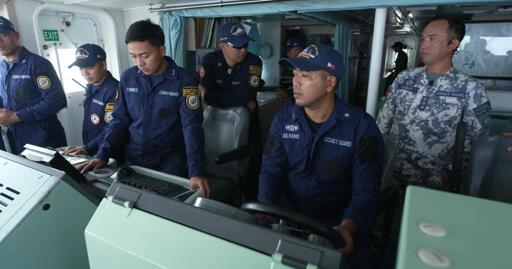An escalating series of clashes in the South China Sea between the Philippines and China could draw the U.S., which has a mutual defense treaty with the Philippines, into the conflict.
A 60 Minutes crew got a close look at the tense situation when traveling on a Philippine Coast Guard ship that was rammed by the Chinese Coast Guard.
China has repeatedly rammed Philippine ships and blasted them with water cannons over the last two years. There are ongoing conversations between Washington and Manila about which scenarios would trigger U.S. involvement, Philippine Secretary of National Defense Gilberto Teodoro said in an interview.
“I really don’t know the end state,” Teodoro said. “All I know is that we cannot let them get away with what they’re doing.”
China as “the proverbial schoolyard bully”
China claims sovereignty over almost all of the South China Sea, through which more than $3 trillion in goods flow annually. But in 2016, an international tribunal at the Hague ruled the Philippines has exclusive economic rights in a 200-mile zone that includes the area where the ship with the 60 Minutes team on board got rammed.
China does not recognize the international tribunal’s ruling.



Meanwhile, any question I ask that has a simple answer is ignored. Why was it commonly believed that China was a civilian dictatorship in 1988, more than a few years after Mao and Dengs time? Why is the one-party state of China not considered a dictatorship when one-party states are?
This entire conversation has been moving goalposts, and every time I defined the goalposts clearly enough to not be moved, you simply ran in another direction. I may not have gotten a university degree, but you’ve still done an amazingly poor job of defending your thesis.
I will give you points on the checks and balances applied after Mao reducing the risks of harm from the dictatorship of China, but the definition of a dictatorship doesn’t rely on the benevolence of the leadership, merely the lack of power of the people to change it, which was not negated by dividing the powers of government between different levels.